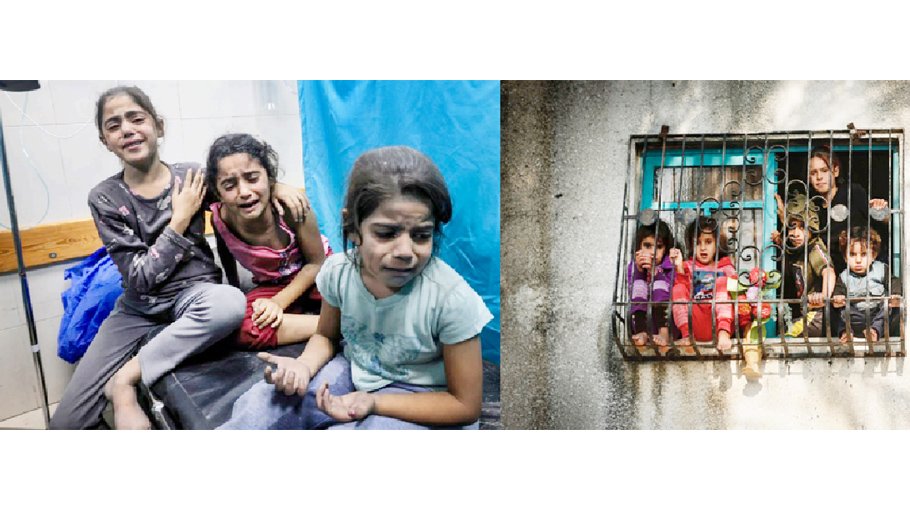How Israel-Hamas war in Gaza is impacting the mental health of children

Unending waves of Israeli airstrikes on Gaza over the past fortnight have aggravated an already perilous situation for the enclave’s children, who have suffered for more than a decade with no end to the conflict in sight.
Health officials in the Gaza Strip say that more than 2,300 children have been killed in the war between Israel and Hamas that erupted following the Oct. 7 assault on southern Israel by the Palestinian militant group.
Some 40 percent of the embattled territory’s inhabitants are aged under 18, with UNICEF reporting that an average of 400 children have been killed or injured daily in the violence. Save the Children fears a further 870 remain trapped under rubble.
Yet what sometimes goes forgotten is that beyond physical injuries, the children of the conflict zone have also had to contend with deep and lasting emotional wounds.
In a recent article, “Child casualties in Gaza ‘a growing stain on our collective conscience’,” UNICEF said that “almost every child in the Gaza Strip” has witnessed distressing events and trauma, with NPR noting that after the 2021 war, 91 percent of Gaza’s children had suffered post-traumatic stress.
“Children with conflict exposure have been found to have higher rates of anxiety, depression and psychosomatic complaints,” said Ayesha Kadir, a senior humanitarian health adviser at Save the Children. “(But) children do not express psychological distress in a single way. Some may act out, others may withdraw.
“They may act younger than their age, start bedwetting, have trouble sleeping, refuse to eat, or have internalizing effects such as stomach aches or headaches. Not all children who experience trauma are traumatized. However, experience of conflict is a form of toxic stress, which has both physical and psychological harms.”
Furthermore, a report produced last year by Save the Children found that more than half of the children in Gaza had suicidal thoughts, with three out of five engaging in self-harm. And with the latest surge in violence, it is not only the children of Gaza who have become direct victims.
UNICEF notes that a reported 30 children were killed in the Oct. 7 Hamas attacks on Israel, while dozens more are either themselves being held hostage within Gaza or have family in captivity.
Jeeda Al-Hakim, a specialist counseling psychologist with the City University of London, said that for children who had witnessed bombings, missile attacks or the loss of family, the psychological manifestation of shock could compound or create additional physical issues.
“They may shake uncontrollably, become mute or unable to speak, emotionally shut down, or have panic attacks,” she told Arab News. “Inside the body, trauma triggers the release of stress hormones like cortisol and adrenaline. This leads to physical problems like headaches, stomach aches, rapid heart rate and poor sleep.”
Al-Hakim added that although closely related, shock and trauma are different. She described shock as “a state of dissociation, where the victim’s body and mind feel disconnected and nothing feels real,” and trauma as “any sudden, terrible experience that disrupts your well-being and overwhelms you.”



